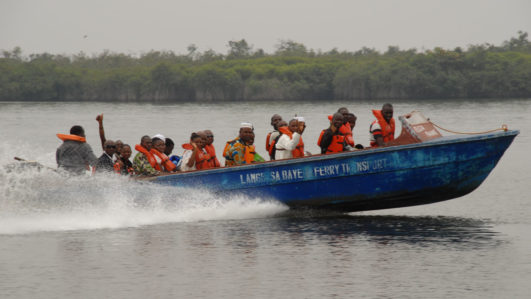The Maritime Organisation of West and Central Africa (MOWCA) has urged member states like Nigeria and the Democratic Republic of Congo (DRC) to enhance the enforcement of Safety of Life at Sea (SOLAS) procedures specifically for inland waterways transportation. This call to action comes in light of recent tragic boat accidents in both nations, emphasizing the urgent need for improved safety regulations on their waterways. The Secretary-General of MOWCA, Dr. Paul Adalikwu, underscored the importance of various safety measures, such as ensuring vessel seaworthiness, preventing overloading, avoiding nighttime travel in the absence of navigational aids, and mandating the use of adequate safety equipment, including life jackets appropriately matched to ferry capacities.
The call for tighter regulations emerged after two tragic accidents: a boat capsizing in Nigeria’s Niger State, where over 300 passengers were aboard, and another incident in the DRC, where a boat with 278 passengers sank, resulting in at least 78 deaths. Both incidents highlight the vulnerability of waterways and the dire consequences of inadequate safety measures. In response, Adalikwu extended condolences to the governments and affected families in both countries, reinforcing the notion that maritime safety is paramount for the welfare of the region. Furthermore, he acknowledged the strategic partnerships within MOWCA, asserting that cooperation among member states is crucial to achieving safer maritime transportation.
MOWCA’s Secretary-General also emphasized the need for both state and non-state actors to become well-versed in SOLAS procedures, particularly Chapters 3 and 4, which focus on lifesaving appliances and radio communication for boat operators. By understanding and implementing these guidelines, member countries can mitigate risks associated with water travel. Adalikwu reiterated MOWCA’s commitment to working with member nations to improve safety practices while offering technical support aimed at exploiting their marine resources effectively across various sectors, such as fisheries, transportation, hydropower, agriculture, and tourism.
Amid these discussions, Babatope Fejemirokun, the National President of the Water Transportation Association of Nigeria (WABOTAN), raised concerns about human factors contributing to the recent accidents. He listed issues such as rough waters leading to vessel damage, overloading, insufficient life jackets, and nighttime navigation as significant barriers to safe waterways in Nigeria. Fejemirokun called on the National Inland Waterways Authority (NIWA) to improve its safety awareness campaigns while enforcing the existing regulatory policies more rigorously. His statements highlight the necessity for joint efforts in fostering a culture of safety and accountability in water transport.
MOWCA acknowledges that while it has made strides toward enhancing maritime safety, the need for continuous improvement in safety regulations and practices remains pressing. The organization aims to promote the implementation of SOLAS regulations among its member states and ensure that all stakeholders engage actively in maintaining a high standard of safety. By focusing on both regulatory and educational efforts, MOWCA seeks to prevent future tragedies, ensuring that the waterways become safer avenues for transportation instead of hazardous zones.
Overall, the tragic accidents in Nigeria and the DRC serve as a wake-up call for all stakeholders involved in inland waterways transportation. Strengthened partnerships and robust regulatory frameworks, alongside active participation from the community, are essential to improving safety. The call to action by MOWCA represents a crucial step forward in safeguarding the lives of passengers and improving maritime operations in West and Central Africa. As nations cooperate to enhance their maritime practices, the focus must also be on sustainable development and utilizing marine resources wisely for the benefit of local communities and economies.


